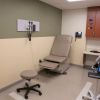How to Monitor Your Heart Health at Home: Tools and Techniques for Better Heart Care
- Introduction to Monitoring Your Heart Health
- Why Monitoring Heart Health is Crucial
- The Best Tools for Monitoring Your Heart Health at Home
- Effective Techniques for Tracking Heart Health
- Real-Life Example: A Story of Heart Health Monitoring Success
- How to Choose the Right Heart Health Monitoring Tools
Introduction to Monitoring Your Heart Health
As we continue to grow more health-conscious and proactive about our wellness, many people are seeking ways to monitor their heart health from the comfort of their own homes. Whether you have a family history of heart disease or simply want to ensure your heart is functioning optimally, understanding how to monitor your heart health is a valuable skill. With the advancement of technology, tracking heart health at home has never been easier. From blood pressure monitors to wearable devices, there are numerous tools available that can help you stay on top of your cardiovascular well-being.
But why is it so important to keep track of your heart health? The heart is at the center of your overall health, and even small changes in its function can indicate underlying health issues. Regularly monitoring your heart health can help detect problems early, allowing you to take preventive measures and consult a healthcare professional when needed. In this article, we’ll explore the best tools and techniques for monitoring your heart health at home, providing you with the knowledge to make informed decisions about your health.

Why Monitoring Heart Health is Crucial
Your heart is responsible for pumping blood throughout your body, supplying oxygen and nutrients to your organs and tissues. As the cornerstone of your circulatory system, keeping your heart in good condition is vital for your overall health. Regular monitoring helps you detect any abnormalities, such as high blood pressure, irregular heartbeats, or other cardiovascular issues, before they develop into more serious conditions.
Early detection of heart problems can significantly improve outcomes. For instance, high blood pressure (hypertension) is often referred to as the "silent killer" because it doesn’t show obvious symptoms until it’s too late. However, by regularly monitoring your blood pressure, you can spot a rise in readings and take immediate action to lower it, preventing heart attacks, strokes, and other complications.
Furthermore, staying informed about your heart health allows you to manage existing conditions, such as heart disease or arrhythmias, more effectively. Consistent monitoring provides you and your doctor with essential data, making it easier to adjust your treatment plans and make necessary lifestyle changes. In the following sections, we’ll discuss the best tools available to help you track your heart health at home.
Deborah Heart and Lung Center
deborah heart and lung center
200 Trenton Rd, Browns Mills, NJ 08015, USA

The Best Tools for Monitoring Your Heart Health at Home
With so many heart health monitoring devices available on the market, choosing the right one can be a bit overwhelming. However, certain tools are highly effective for home use and provide reliable data that can help you stay on top of your cardiovascular health. Below are some of the most popular and widely recommended heart health monitoring tools:
1. Blood Pressure Monitors
One of the most common ways to monitor heart health at home is by using a blood pressure monitor. These devices measure the force of blood against your artery walls and provide valuable information about the health of your heart and blood vessels. There are two main types of blood pressure monitors: manual and digital. Digital blood pressure monitors are the most user-friendly and provide accurate readings, making them ideal for home use.
Regular monitoring of blood pressure can help detect high blood pressure (hypertension), a condition that often leads to heart disease, stroke, and kidney damage. By keeping track of your blood pressure at home, you can quickly notice any changes and work with your doctor to make adjustments to your treatment plan.
2. Heart Rate Monitors
Heart rate monitors are another essential tool for tracking heart health. These devices measure your heart rate (the number of beats per minute) and can be used to assess the effectiveness of your heart function. Many heart rate monitors are now available in wearable forms, such as wristbands or smartwatches, making them easy to use throughout the day.
Tracking your heart rate regularly is especially helpful for people with heart conditions, athletes, or those who want to ensure their heart is working at an optimal level during exercise. Elevated heart rates or irregular rhythms can be a sign of potential heart problems that may need further evaluation by a healthcare provider.
3. Smartwatches and Fitness Trackers
In recent years, wearable technology has revolutionized heart health monitoring. Devices such as the Apple Watch, Fitbit, and Garmin offer features that allow users to monitor their heart rate, track physical activity, and even detect irregular heart rhythms (such as atrial fibrillation). These devices are particularly useful for individuals who want a more comprehensive view of their heart health, as they can track various metrics such as step count, exercise intensity, sleep quality, and more.
Additionally, many smartwatches come with built-in ECG (electrocardiogram) functionality, which can help detect signs of arrhythmias or other abnormal heart rhythms. Having access to such technology can provide peace of mind and alert you to potential heart issues in real-time.
4. Home ECG Monitors
For those who require more detailed heart health monitoring, home ECG monitors are an excellent option. These devices allow you to take an electrocardiogram (ECG or EKG) from the comfort of your home. An ECG records the electrical activity of your heart and can help detect irregularities such as arrhythmias or signs of a heart attack.
While home ECG monitors are typically more expensive than other heart health tools, they are invaluable for individuals with pre-existing heart conditions or those who need regular monitoring of their heart's electrical activity. Some devices sync with apps that allow you to store and share your ECG results with your doctor for further analysis.
Effective Techniques for Tracking Heart Health
Monitoring your heart health at home goes beyond simply using the right tools. It also requires establishing consistent habits and techniques to track and interpret your heart-related metrics. Here are some effective methods for tracking your heart health:
1. Set a Regular Monitoring Schedule
To get an accurate picture of your heart health, it’s important to monitor your metrics regularly. For example, measuring your blood pressure once a week, tracking your heart rate during physical activity, and wearing a fitness tracker throughout the day can help you spot any trends or abnormalities over time.
2. Record and Analyze Your Data
Keeping a record of your heart health readings is key to understanding your cardiovascular health. Many devices come with apps or online platforms that allow you to track your data over time, making it easy to spot patterns and share results with your doctor. Recording your data can also help you make informed decisions about lifestyle changes, such as adjusting your diet or exercise routine.
3. Know When to Seek Professional Help
Monitoring your heart health at home is an empowering tool, but it’s also important to know when to consult a healthcare professional. If you notice significant changes in your heart rate, blood pressure, or other metrics, it’s essential to seek medical advice promptly to prevent potential complications.
Real-Life Example: A Story of Heart Health Monitoring Success
Consider the story of John, a 52-year-old man with a family history of heart disease. John decided to start tracking his heart health using a smartwatch and a blood pressure monitor. Over the course of several months, he noticed a gradual increase in his blood pressure readings, which led him to visit his doctor. Thanks to early detection, John was able to start treatment and make lifestyle changes to lower his blood pressure before it developed into a more serious condition. His proactive approach to monitoring his heart health helped him avoid a potentially life-threatening situation.
How to Choose the Right Heart Health Monitoring Tools
Choosing the right heart health monitoring tools depends on your specific needs and preferences. If you’re simply looking to monitor your blood pressure, a basic blood pressure monitor may be sufficient. For those who want a more comprehensive view of their heart health, consider investing in a smartwatch with ECG capabilities or a home ECG monitor.
When shopping for heart health tools, be sure to look for reputable brands, check customer reviews, and consult with your healthcare provider to ensure you’re selecting the best option for your needs. Additionally, consider the device’s compatibility with any other health tracking tools you use, as well as its ease of use and the accuracy of its readings.
By incorporating regular heart health monitoring into your routine, you’ll be taking a proactive approach to your cardiovascular well-being. Whether you choose a blood pressure monitor, a smartwatch, or a more advanced ECG device, staying informed about your heart health is an essential step toward leading a long, healthy life.





















Hoag Urgent Care Irvine - Sand Canyon
hoag urgent care
16205 Sand Canyon Ave Suite 100, Irvine, CA 92618, USA